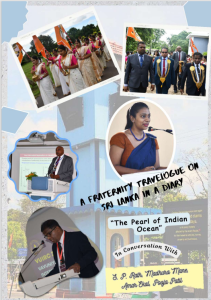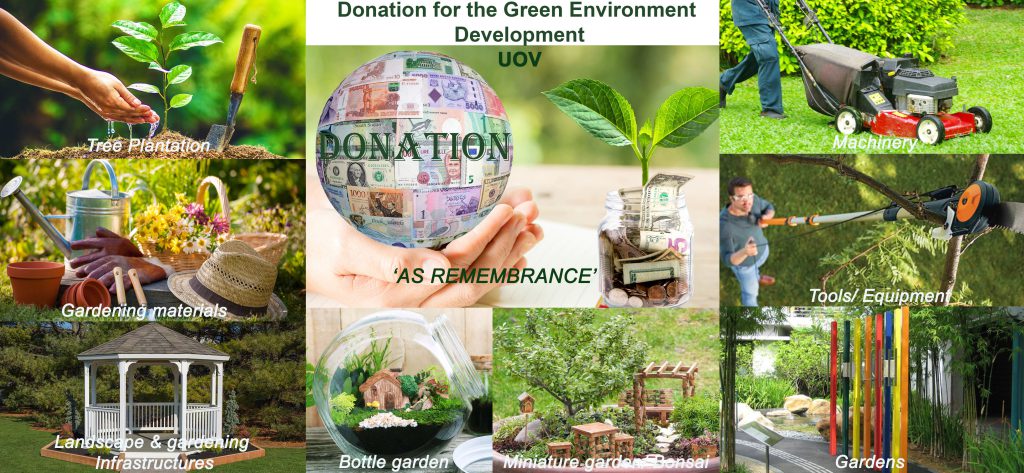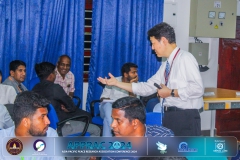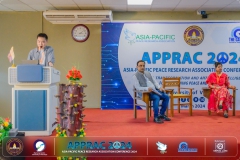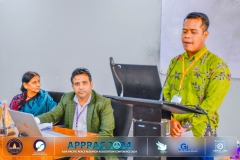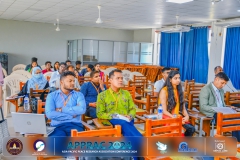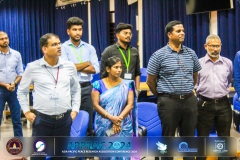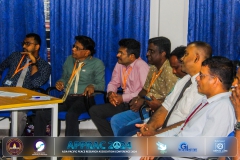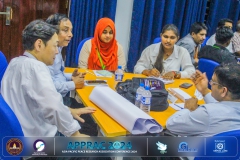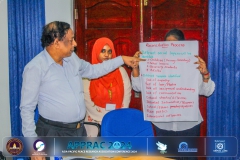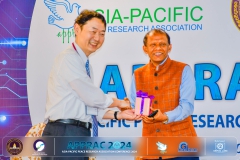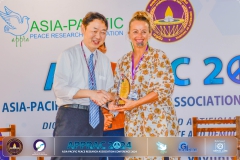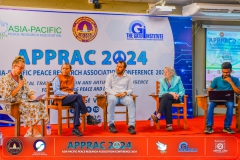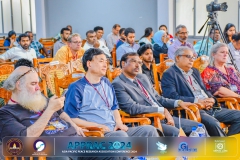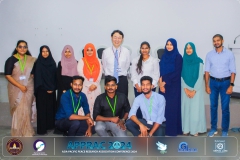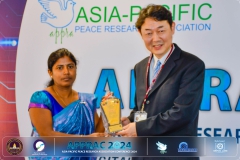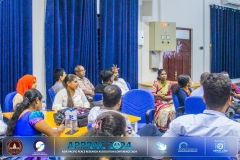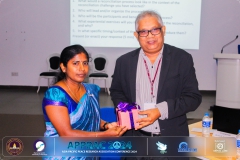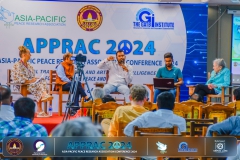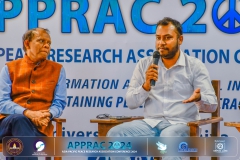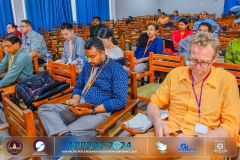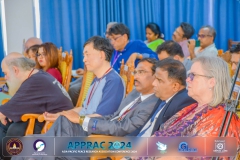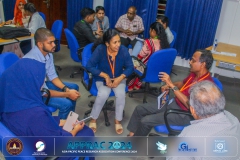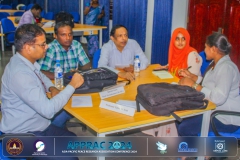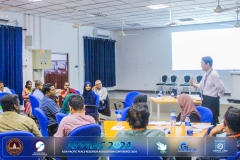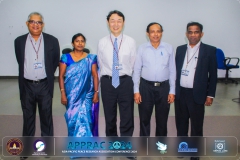Date:08.03.2024
Location: TLH 1 Hall, Faculty of Technological Studies, University of Vavuniya (UOV)
The second day of the Asia Pacific Peace Research Conference commenced with registration at 8:00 AM, followed by the arrival of guests at the Conference Main Hall. Traditional customs were honored with the lighting of the lamp, symbolizing the pursuit of knowledge and wisdom. A mesmerizing welcome dance set the stage for a day filled with insightful discussions and cultural celebrations.
The Convener of APPRAC 2024 delivered a heartfelt welcome speech, expressing gratitude to all attendees and emphasizing the conference’s mission of promoting peace and sustainability.
The event was graced by the esteemed presence of Maria Teresa Muñoz, Co-Secretary-General of the International Peace Research Association (IPRA), Argentina, who delivered an inaugural address, underscoring the importance of collaborative efforts in achieving global peace.
A tribute to Professor Johan Galtung, widely regarded as the Father of Peace Studies, was chaired by Professor Matt Meyer, paying homage to his seminal contributions to the field of peace research.
Professor Roy Tamashiro from Webster University, USA, as special guest delivered an enlightening speech on “Memorials & Museums for Peace: In Search of Peacebuilding for Tumultuous Times”, shedding light on innovative approaches to peacebuilding in contemporary society. This was followed by cultural performances adding vibrancy to the proceedings.
Guest of Honor speeches were delivered by Professor V Kanagasingam, Vice Chancellor of The Eastern University of Sri Lanka, and Professor Linda Groff, Director of Global Options & Evolutionary Futures Consulting, California State University, Los Angeles County, California, USA. Both speeches emphasized the imperative of academia in advancing peace and fostering cross-cultural understanding.
Professor Tatsushi Arai from Kent State University, USA, delivered a thought-provoking keynote speech on ‘Digital Transformation and Artificial Intelligence for Sustaining Peace and Democracy’, elucidating the potential of technology in promoting peace and democracy worldwide.
A panel discussion on ‘Artificial Intelligence for Sustaining Peace and Democracy’ provided a platform for interdisciplinary dialogue and exploration of innovative approaches to leveraging technology for peacebuilding.
Following a tea break, participants engaged in workshops facilitated by esteemed scholars. Professor Tatsushi Arai conducted a workshop on “Intercommunal Reconciliation through Experiential Learning” to the Directors of the Social Reconciliation Centres, Sri Lanka, while Dr. Wim Laven led a session on “Forgiveness and Reconciliation in the 21st Century”, offering valuable insights into reconciliation processes.
Parallel technical sessions covering diverse thematic areas were conducted across various venues within the university. Additionally, participants had the opportunity to visit the Forest Pocket Park at the university, connecting with nature and fostering a sense of environmental stewardship.
The day concluded with a tea break, providing participants with an opportunity to network and rejuvenate before the afternoon sessions.
Overall, Day 2 of the APPRAC 2024 conference witnessed a convergence of scholarly discourse, cultural celebration, and experiential learning, furthering the conference’s mission of advancing peace and sustainability in the Asia-Pacific region.

